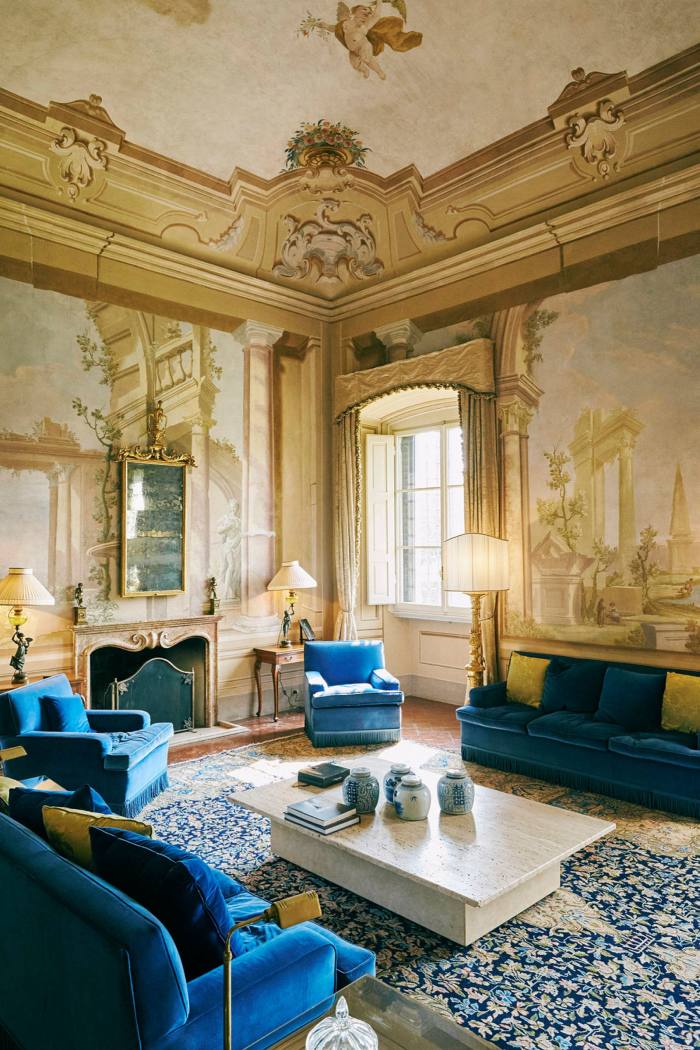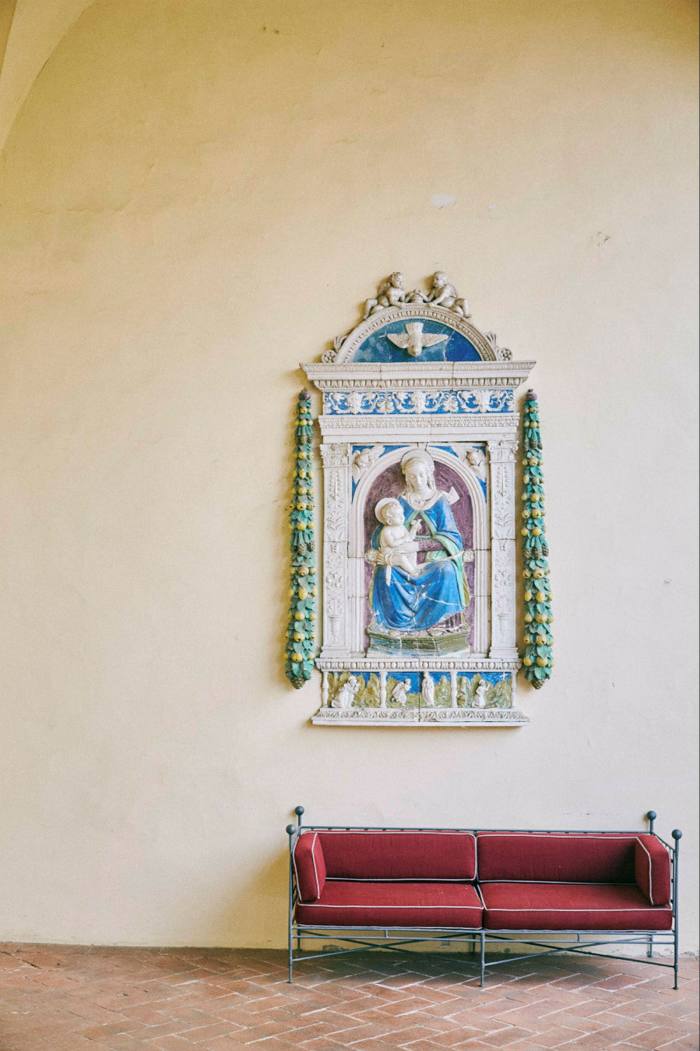Ayesha Vardag knows the secret to a long marriage: separate bedrooms.
As one of the UK’s leading divorce lawyers, and married twice, she is something of an authority. Her new home, a seven-bedroom Renaissance villa in a 13-acre park outside Florence, certainly affords the space for her and her husband to maintain the aristocratic tradition of individual chambers.
“It’s fantastic. You can just disappear if someone is being irritating. I’m sure it’s the reason our marriage has managed to endure, while my other [relationships] didn’t”, she says, sipping Franciacorta on a lapis lazuli-blue velvet sofa.
Her firm Vardags is the go-to place for footballers, billionaires and Middle Eastern royalty who are ending their marriages, famously securing a £64m divorce deal for Pauline Chai, wife of Laura Ashley boss Khoo Kay Peng.
Vardag, 53, was dubbed Britain’s top divorce lawyer by the Law Society in 2010 after a landmark Supreme Court case that resulted in prenuptials becoming enforceable in England and Wales.
She tends to take on only cases where the assets in dispute are £100m-plus. When both sides seek Vardags’ representation, it’s first come first served.
She and her husband Stephen Bence, the chief executive of her firm and chairman and co-founder of data provider Beauhurst, have operated remotely for much of the past six or seven years from Dubai, between in-person trips to London.
With lockdowns initially putting break-ups on hold (they later spiked), the pandemic brought “immense stresses” for the business, she says. But ultimately, it enabled most of the far-strewn family of seven children and stepchildren, aged between 25 and 1, to spend time together.
Earlier this year, the couple decided to shift their permanent base to Florence, renting the 15th-century villa and a city-centre apartment from a “discreet” aristocratic family. “The world has become such a small place and Florence is so commutable,” says Vardag.
These hills have been the place to see out plagues in style since The Decameron. The frescoed Medici-style villa, surrounded by citrus trees, vines and olives, is “just a hop” from the city centre. “You could get here by horse in about half an hour,” says Vardag, who has horses stabled nearby.
Previously an events venue renting for €9,000 a day, the villa came fully furnished. “I can’t take any credit for it,” says Vardag. She doesn’t seem to know much about the property or the Antinori family that built it. “I imagine they will have been a merchant or in trade, reaching greatness through personal endeavour, which is an approach dear to my heart.”
More recently, a high-society American couple restored the villa, inserting their own faces into a fresco. The Kennedys were such frequent guests that locals refer to the villa as “the Kennedys’ place”, she says.
It’s made for entertaining. In the ballroom, a chandelier the size of a Shetland pony hangs over a grand piano dating back to the Kennedy days, and a musicians’ gallery.
“I remember standing in the gallery thinking, ‘Wow, this is what it must be like to be Eva Perón addressing the multitudes.’” But the space poses a conundrum. It’s “awkward”, says Vardag. “I see it as dead space, and the kids ride their trikes and run around, that’s what we use it for more than anything.”


Vardag, who trained at the prestigious “magic circle” firm Linklaters, left commercial practice for the more emotionally engaging family law, hired away by the solicitor she had instructed while divorcing husband number one.
She started her own firm in 2005, hiring lawyers with commercial backgrounds and bringing City sharpness to a field she previously regarded as too high street.
Family law, she says, brings you down “to the basics of humanity”. “It’s fundamentally not esoteric or dry or specialist, it’s about love and sex and rejection and guilt and security and home and children: all the fundamental things that anyone cares about.”
While cultivating a reputation as expensive and worth it, Vardags seems to have an old-school ethos that verges on out of touch. A 2019 leaked internal email detailed her dress code directive (female staff were advised they could look “discreetly sexy” but never “tarty”).
With remote working now the norm, isn’t formal office wear consigned to the closet, I venture. Not at Vardags. While she doesn’t care what employees wear for internal work at home, it is “a mark of respect to dress ‘properly’ for clients”, she says. “They make the effort and they are paying lots of money.”
A dining room is decorated with frescoes of the gods including Apollo the sun god and his twin Artemis, in the act of turning the hapless hunter Actaeon into a stag, to be torn apart by his own hounds for the sin of seeing the goddess bathing in the nude.
It’s tempting to see the grisly drama, the temptation and revenge, as fitting subject matter for a divorce lawyer’s decor. But for Vardag, it’s the more romantic paintings that chime with her work, “because the whole Romantic period is intense emotions, and my whole world is sort of steeped in intense emotions. This is my daily diet.”
Vardag’s own hounds — Acapella, Shah-Namah and Sarab, three Salukis she adopted in Dubai — are willing models for the stately home photo shoot, trailing us upstairs to a series of rooms with canopied beds, some with tell-tale paw imprints. “They won’t lie on the floor, I suppose because they are very bony,” explains Vardag.


A traditional Tuscan kitchen has a fireplace large enough to spit-roast a local wild boar. Vardag admits she hasn’t cooked for years, the family being looked after by a crew of housekeepers, cleaners, cooks, a full-time nanny, drivers and office staff.
It’s easy to see why her ultra-wealthy clients might be comfortable around Vardag. She’s become as wealthy as they are, joining an elite club with staff, horses and multiple homes around the globe.
From her side, the rich are just like anyone else. “You find the same levels of abuse, control, violence, drunkenness, mental cruelty and the same good things: people being loving, generous, children-focused and wanting to have peaceful settlements.”
The principal difference is that it can be harder to pin down assets, and dividing them can be “like a global corporate demerger”.


Vardag is full of reforming zeal and ideas to make the legal process for divorcing couples quicker, fairer and, wherever possible, to cut out the lawyers altogether, lobbying for a more systemic family law procedure. Decisions in family law are generally bespoke, which judges are proud of, but that makes the procedure slow and expensive, she says. Greater certainty about likely outcomes could help couples settle earlier, saving money.
As noble as it sounds, it is not easy to see how the family’s lifestyle in this magnificent villa and their other homes could be maintained if the number of divorce proceedings crashed.
It is a lifestyle that is a long way from her childhood in Oxford, where her mother was a senior administrator at New College and Vardag washed dishes in a café to help out her “completely broke” family.
Vardag and Bence, both being divorced, were wary of going down the aisle again. “We thought it was a lot of hassle that forces you into contact with the legal system,” she says. But they changed their minds after becoming closer to each other’s children. “I do feel there is something special about marriage,” she says. “We felt we didn’t need it for us but for our families.”
Ultimately, the couple signed a prenuptial agreement, as Vardag advises anyone with assets or income to do, and a postnuptial for good measure. “Otherwise you hand your lives to a slow and expensive legal system.”
Of course, if everybody took her advice, it would put her out of business, she jokes. Then again, if necessary, Vardags could change its business model and arrange “loads of pre-nups”, she says.
With the benefit of experience, Vardag says she can predict whose marriages will stay the course. “The things that give you longevity in marriage are fundamentally enjoying each other’s company, not just physically. That reduces over the years. You have to have someone you have fun with, are stimulated by. You need to think in terms of 10,000 dinners: if you can imagine having dinner with someone 10,000 times, this is someone you should marry.”
My favourite thing

Vardag picks a mat from Laos made by a collective of women in hill tribes and sold through an artisan social enterprise called Ock Pop Tok. Vardag puts them “everywhere” in her houses: “I use them as bath mats and stick them on sofas to protect them from dogs.” She feels strongly about buying from small collectives rather than a mass producer. “This is keeping traditions alive, enabling people making crafts to have jobs and communities to survive and continue their way of life.”
Follow @FTProperty on Twitter or @ft_houseandhome on Instagram to find out about our latest stories first
Credit: Source link










